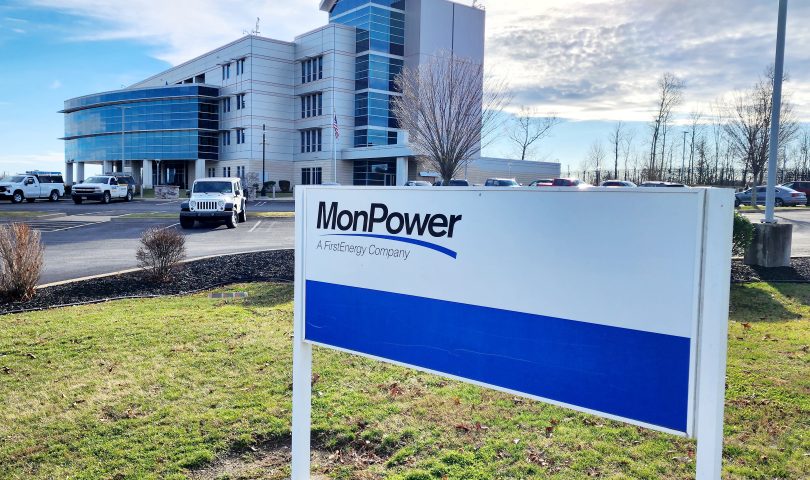MORGANTOWN – Consumer groups and industrial customers of Mon Power and Potomac Edison have filed objections and suggestions with the state Public Service Commission regarding one of the FirstEnergy sister’s rate-hike proposals.
In this case, they are asking for $167,465,330, which they project would add $9.19 to the average monthly residential bill, raising it from $120.20 to $129.39 — a 7.8% hike. It is an ENEC case – expended net energy cost – designed to allow utilities to cover their costs of producing power.
The filed testimony covers hundreds of pages and we offer here a few highlights.
Chelsea Hotaling testified on behalf of a coalition of the West Virginia Citizens Action Group, Solar United Neighbors and Energy Efficient West Virginia.
Hotaling said Mon Power runs its Fort Martin and Harrison coal-fired plants uneconomically. During the period July 1, 2022, through June 30, 2023, the plants’ costs were greater than their energy 18 revenues. “By running these units when it was uneconomic to do so, Mon Power increased the ENEC costs that are passed on to ratepayers.”
Hotaling also said the plants maintain coal inventory above their safety levels. “Rising coal inventory levels at both Harrison and Fort Martin pose a risk of imposing further added costs to ratepayers through future uneconomic dispatching of those units as a means to manage excessive on-site coal inventories.”
Hotaling made several recommendations. One was that Mon Power should reevaluate its procurement practices, focusing on whether it can avoid or reduce contract obligations and procurement decisions that force the plants to operate in the red.
She also said Mon Power should look at diversifying its generation mix to increase the number of resources that are not subject to the same fuel price volatility. The regional mix for the PJM grid for the same period was 37.1% natural gas, 32.8% nuclear, 21.6% coal, 4.3% wind, 2.0% hydro, and 1.2% solar, with smaller amounts of other resources.
Longview Power
Longview Power is a Mon Power customer and its Maidsville coal-fired plant sits across the road from Fort Martin. Longview Power in September unsuccessfully moved to have the PSC dismiss $144,805,585 from the case, alleging the costs were imprudent.
Longview CEO Stephen Nelson recommended to the PSC that Mon Power and Potomac Edison retain an experienced, outside consultant, selected by the PSC, to conduct a thorough review of their next ENEC filing, alleging their filings force intervenors to “ferret out” the real issues in the case.
Brian Hoyt, Longview’s compliance and environmental manager, said the companies purchased more NOx emission allowances than necessary because they failed to properly operate and maintain the NOx emission controls at Fort Martin. The companies waited too long before purchasing the emission allowances they needed and bought them at three times the price they should have.
He said Longview recommends disallowing recovery of $42.2 million of excessive 2022 Ozone Season NOx Allowance costs and $18.3 million of 2023 Ozone Season NOx Allowance costs.
Randy Gillespie, Longview’s chief commercial officer, said an analysis of Fort Martin’s reduced energy production during the first half of the review period indicates the shortfall was caused by “the companies’ unreasonable failure to procure sufficient coal to meet the expected needs of Fort Martin in 2022 and insufficient coal inventories, and that if the companies had bought the coal they needed they would have produced additional PJM energy margins of $53.5 million for the benefit of their ratepayers.”
WV Energy Users Group
Philip M. Hayet testified on behalf of WVEUG, a group of large industrial customers of Mon Power and Potomac Edison.
The group said the proposed hike imposes significant increases in ratepayer bills. “The impact of increases in the ENEC is particularly harmful for energy intensive industrial and manufacturing customers like WVEUG members, and it is further compounded by the large increase in base revenues that the companies seek in their currently pending base rate case, which is to occur within three months of the ENEC increase sought here.”
WVEUG notes that this ENEC case comes on top of significant increases during the past two years. “For large, high load factor industrial and manufacturing customers like WVEUG members, the ENEC increases, have been particularly devastating because ENEC costs are primarily energy-related.”
WVEUG proposes that instead of approving two ENEC rate hikes in 2024 – on Jan. 1 and March 27 – the PSC approve a single 2024 ENEC hike coinciding with the base rate increase expected on March 27.
And instead of spreading ENEC hikes across two years, as the companies proposed in this case (asking for $167.5 million of a total $243,032,313 under-recovery in this case), WVEUG recommends spreading it across three years. And that the companies be directed to forego filing a 2025 ENEC case, meaning they would not make an ENEC filing in August/September 2024 for new rates to be effective on Jan. 1, 2025. They would then file their next ENEC case in August/September 2025 for new rates in 2026.
The companies have two other rate-hike cases pending before the PSC.
One is their base rate hike request: $207.5 million for infrastructure and for their energy assistance program. The hike would cost the average residential customer $18.07 per month — raising a bill from $120.20 to $138.27.
The other is to fund their Vegetation Management Program. It proposes an increase of $16,969,398 to take effect Jan. 1, 2024, and $16,989,110 to take effect Jan. 1, 2025 — for a total of $33,938,795.
They say this reflects an overall 1% increase aggregated against all their customer classes. For the average residential customer using 1,000 kilowatt hours per month, they project a hike of $2.47 per month, raising the bill from $120.20 to $122.67.
Email: dbeard@dominionpost.com




